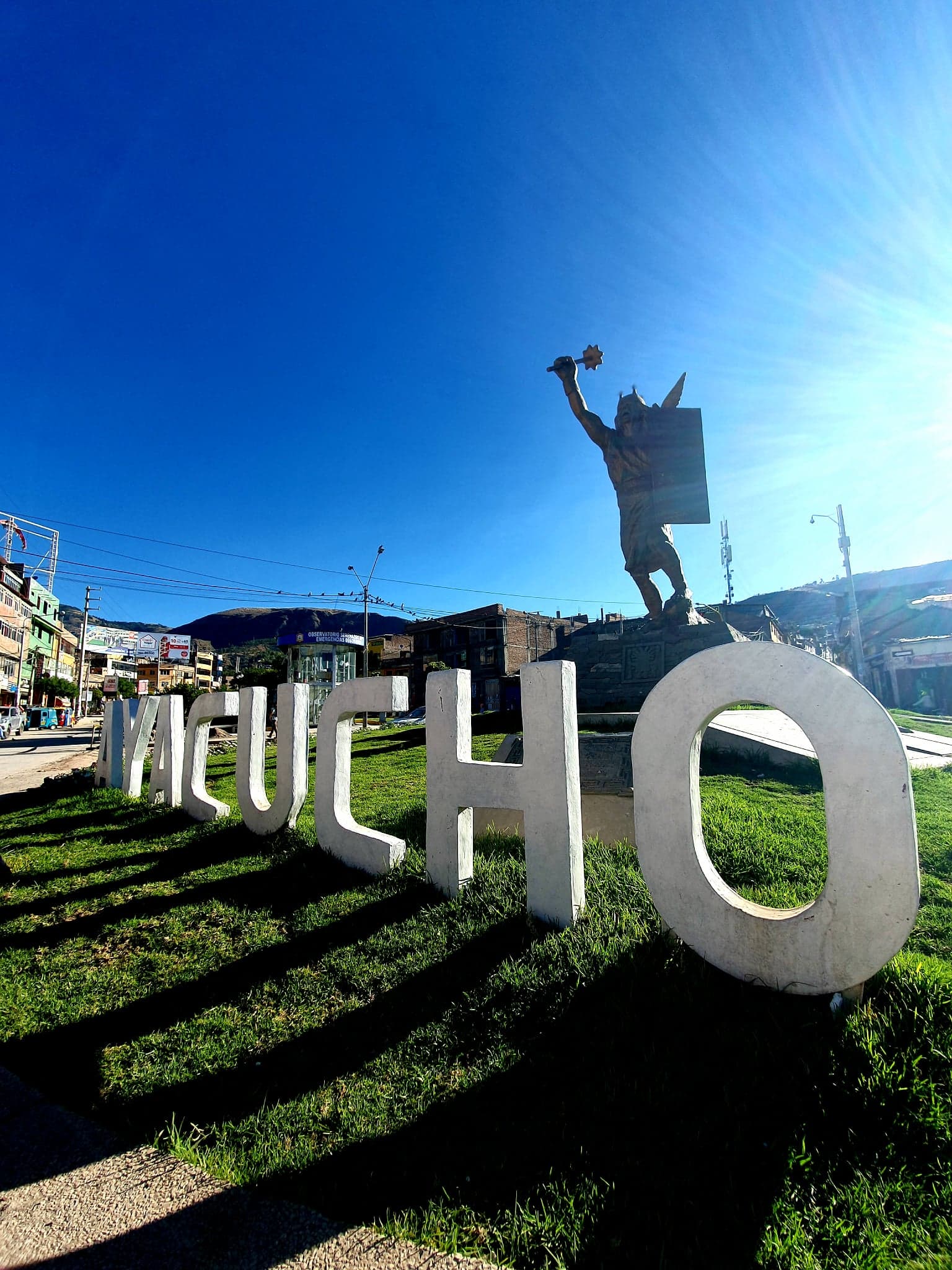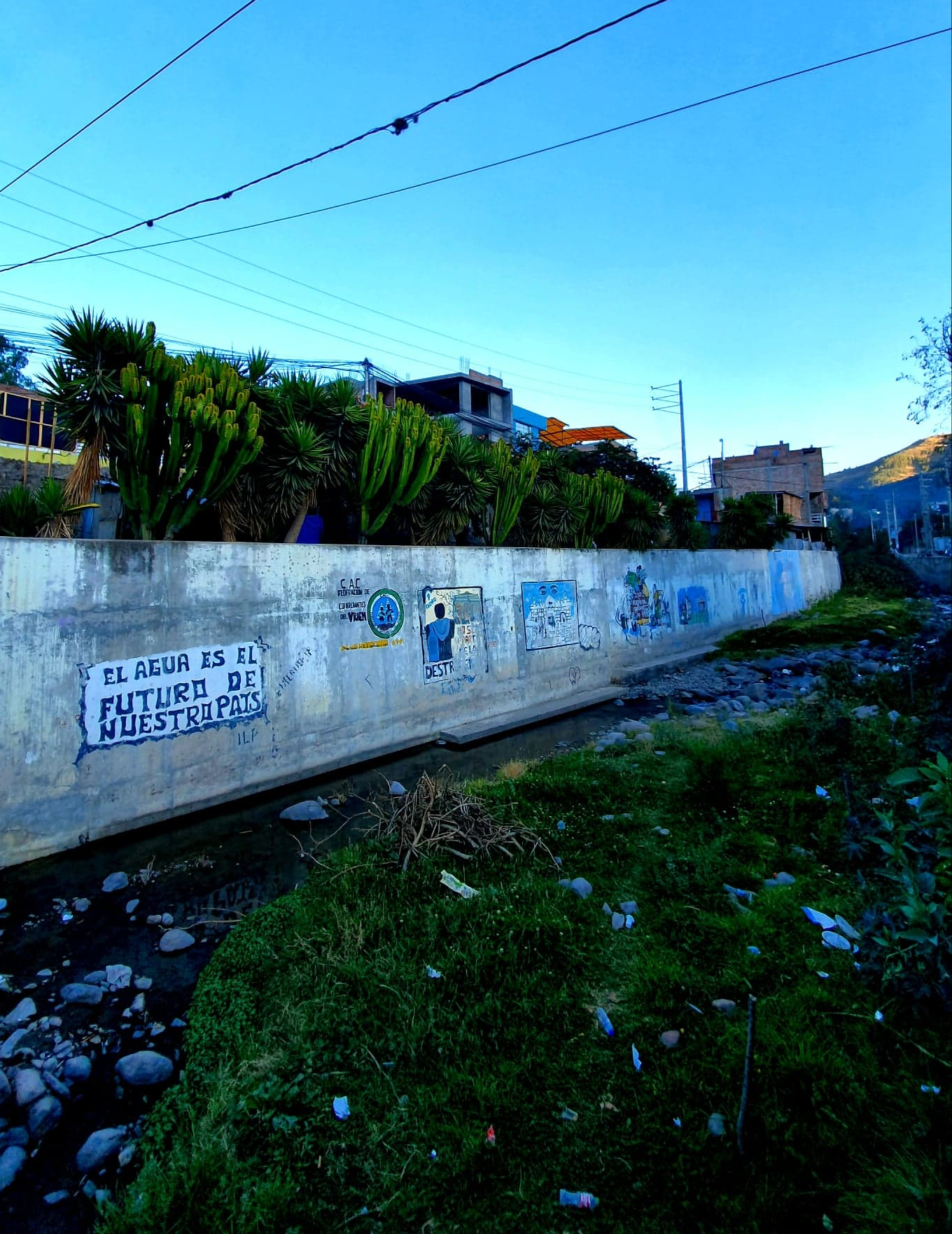Three students from the University of the West of England (UWE Bristol) have travelled to Peru this summer, as part of the UWE Global Water Security Programme, to work with researchers from the Centro de Competencias del Agua (CCA). Our work with CCA is based around strengthening local capacities for the sustainable management of the Andean basin headwaters. Here, the first two students to arrive in Peru explain more about their work and their first impressions of Ayacucho.
 Edward Pearson, a BA Human Geography student, writes:
Edward Pearson, a BA Human Geography student, writes:
I have been warmly welcomed by the Agua-Andes research team, which has greatly assisted the process of settling in. It is truly inspiring to see the commitment and care that the team members have to the research and the cause, which is – as I have discovered – of vital importance to the future of the region’s prosperity. The topic of water in Peru is not only strenuously debated within the country’s national policy, it is also regarded as a highly important topic for international study. For years the country has suffered the consequences of an inefficient bureaucracy in the decision-making processes for water policy. Today, the added threats of further water scarcity from climate change and a hydro-exploitative agro-export industry are forming a rather grim future for the country’s water supply. It is for these reasons that the work of the Agua-Andes organization is of such pertinence.
Because of my Human Geography background, I chose to focus on the anthropological aspect of the research which is coordinated by Rossi Taboada Hermoza. Under the instruction of Rossi, I am concentrating my work over the coming week on the Payment for Ecosystem Services (PES) initiative that is being implemented in the headwaters of the Cachi Basin, a main source of water for the Ayacucho region. This work involves some preliminary work to be undertaken at the Agua-Andes office in preparation for a field research project which will be conducted in the coming weeks.
Although the city of Ayacucho may not have the cultural attractiveness of its Andean counterpart, Cusco, the authenticity here is undeniable. After spending two weeks in Cusco prior to my arrival in Ayacucho, this city provides a safe haven away from the hordes of tourists found in the ancient Incan capital. Simply walking around this colourful city is a satisfying experience, with a more DIY feel to the exploration of its plentiful supply of churches and other nimble charms. This, coupled with a trip to the beautiful township of Huanta, where, in a nearby valley, hides a magnificent waterfall, has left me very fulfilled with my first week in Ayacucho.
 Maria Baquerizo Montero, studying for a BSc in Environmental sciences, says:
Maria Baquerizo Montero, studying for a BSc in Environmental sciences, says:
As the Cachi basin is such a crucial source of water for Ayacucho, it is very important to document the hydrological functions of the high Andean wetlands and their contribution to water availability along the Cachi basin.
This is why I chose to focus my research on ways to monitor how much water the basin can retain during the months of drought, to assist future predictions.
During my first week in Ayacucho, I was translating some documents into English, as well as getting to know the staff, their projects, and how the communities work.
In my second week, I was collecting information about the drought around Peru and learning more about different drought indicators in order to identify the best methodology that can be used for the Cachi Basin.
